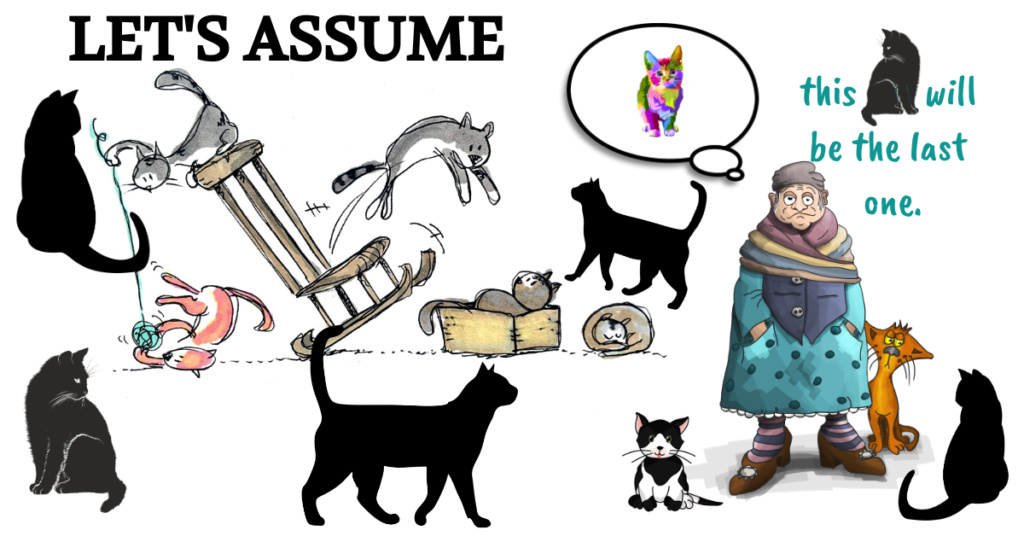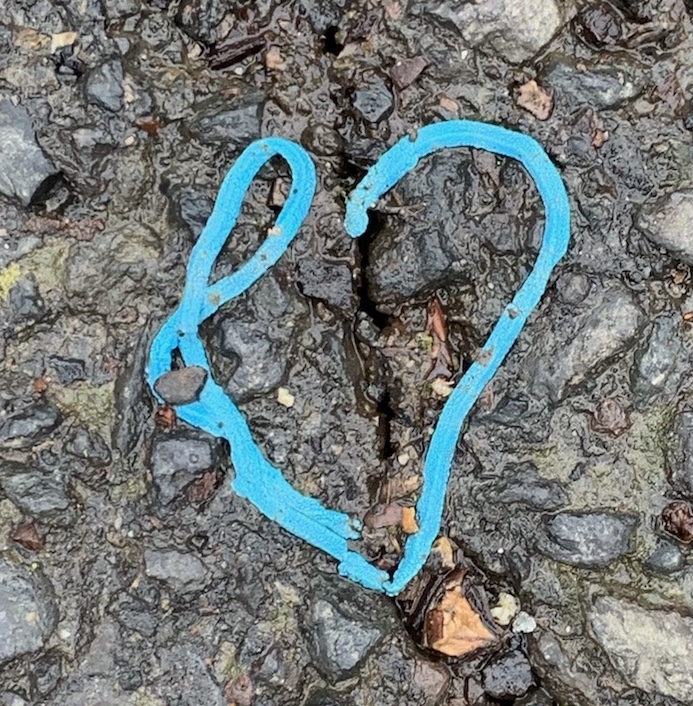
Whether we mean to or not, we make assumptions.
I was in the middle of making a big dinner when I ran out of milk for one of the dishes. The convenience store a few blocks away was, of course, convenient, but the line was a mile long. I picked up the milk and took my place behind a tiny gray-haired woman in a tattered plaid coat. When it was her turn, she placed several cans of cat food in front of the cashier, then swung to her right toward the deli window where a jar held a bouquet of white plastic utensils. She plucked one perfect white spoon from the bouquet and turned back to the cashier. The cashier, who knew the customer by name, added a few coins from her own pocket to complete the sale. Using only what I’d seen, I made some assumptions:
- The woman in the tattered coat had one or more cats.
- She might be planning to eat some of the cat food with that plastic spoon from the deli.
- She was having trouble coming up with the money to feed either herself or her cats or both.
- The cashier had empathy.
My focus was on assumption number two. Yuck. I tried to hide my grimace. I had never been so hungry that I would consider eating cat food, and I couldn’t imagine any human enjoying the taste of it. But, maybe?

I followed the woman in the plaid coat. I wanted to see where she lived. Later that night I brought her a huge plate of the dinner I’d made. Her house was dark when I got there. She didn’t answer my knocks, so I left the aluminum-foil-covered meal on a table by her door—although I’m pretty sure the bazillion cats hanging around the porch got to the meal before she did. After that, I drove by her house almost daily. I asked the convenience store clerk if the woman was okay. But within the next few weeks, the woman’s house was boarded up. She was gone. I never saw her again and no one could tell me what had happened to her, regardless of who I asked. But I won’t forget her. I missed the rich opportunity of getting to know her as a person rather than a stereotype. I missed my only chance to understand who she really was. I’ll never know where she began and where she’d traveled on her life journey.
Every time I see a tiny gray-haired woman in a tattered coat, I think of her. But I also find myself wondering if this new tiny gray-haired woman has a bazillion cats to feed. And what’s in the small grocery sack she’s carrying?
Assumptions. My father used to say, “When you assume you make an ass of you and me.” But we all do it on occasion. I’m not sure that makes us all asses. I do believe it’s a type of shorthand that keeps us from getting to know the really important stuff about each other. As a human, I try to remember that none of us are stereotypes. We all come from somewhere.
As a writer, I need to know where my characters come from. What is their life journey? I want you, my readers, to know the same things, so I can’t afford to use that type of shorthand.

Minnie Chance would have immediately struck up a conversation with the woman in the tattered coat. They would have walked off together, making small casual attempts at conversation. Later Minnie would buy a ton of cat food from a big box store and drop it off at the woman’s house. Then she would stop by occasionally just to check in—and she would make sure she had some “extra” groceries with her when she did. Minnie would come to know the tiny gray-haired woman in the tattered plaid coat.
And if I had a do-over, I hope my reaction would be more person to person—more like Minnie’s.
What do you think?
I’ll keep writing.
Please keep reading.



This little blurb was actually a short story in itself.
So happy that you realized where your talents lie so that avid readers like myself can readily enjoy your “professional prevaricating””.” 😉
Linda,
Thank you so much.
I’m editing, and your comment just made my day.
Cynthia